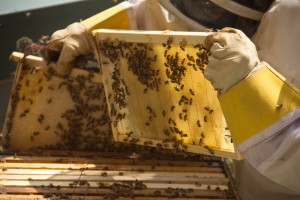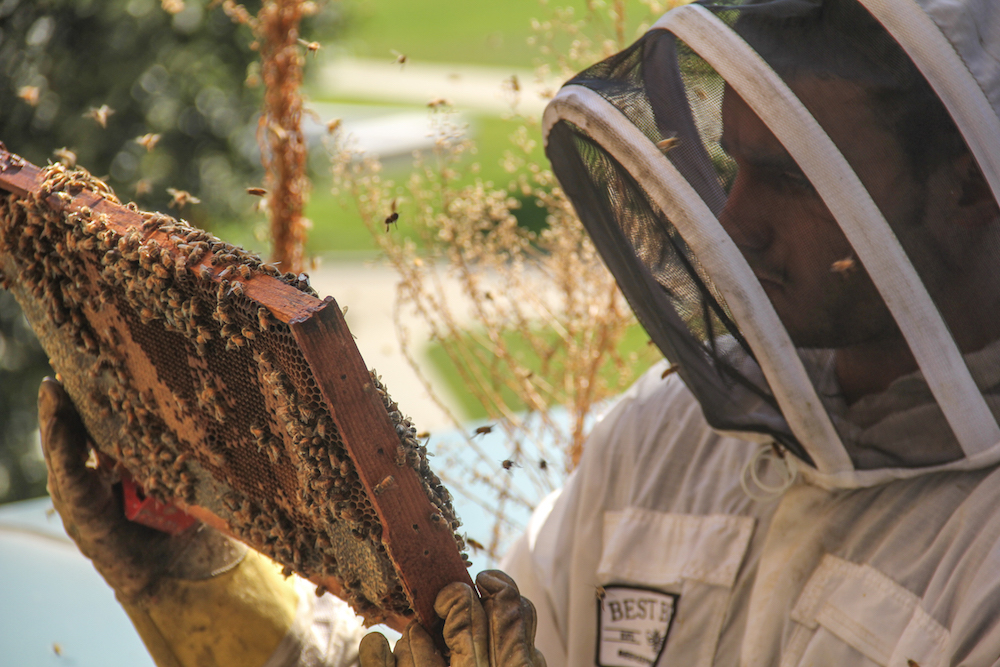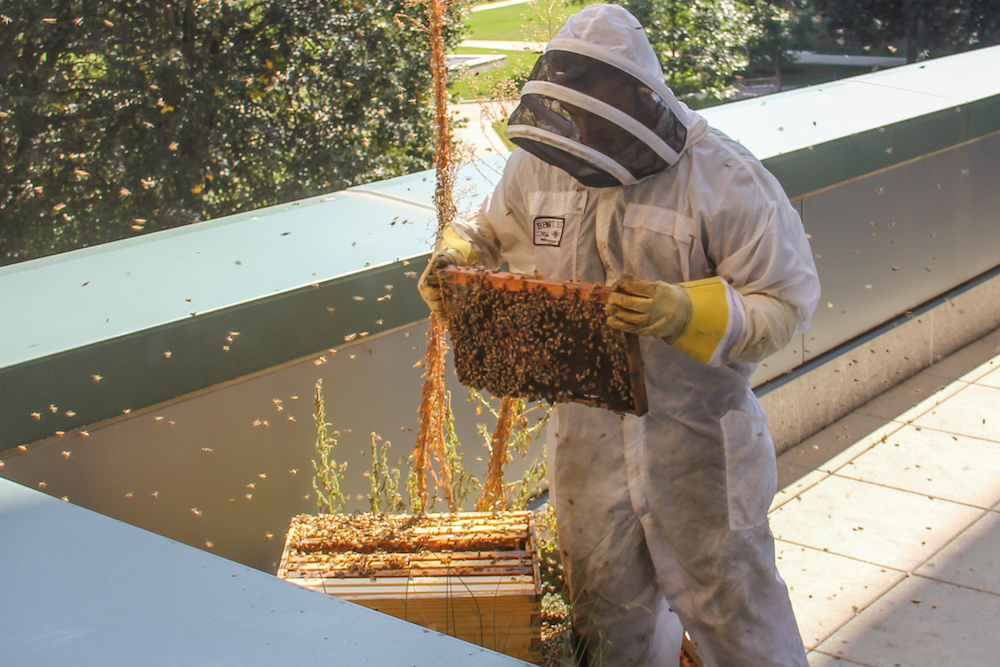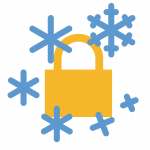 When you’re on campus every day, it can be easy to miss some interesting things that are hiding in plain sight.
When you’re on campus every day, it can be easy to miss some interesting things that are hiding in plain sight.
For example, did you know that there’s a beehive on campus? On the terrace outside of L-201 in Lefavour Hall, there’s a thriving colony that supports the local bee population as well as ongoing research efforts.
Established in the spring of 2013 as a joint effort between the student-run Sustainability Club, Buildings & Grounds, and Boston-based Best Bees, the colony’s original purpose was to combat Colony Collapse Disorder.

The first two years were difficult, and the hive did not make it through the winter. Last winter, a new hive was closely managed and provided with a new organic food source. Defying the odds, the hive survived the winter and increased in size throughout the warm spring months.
This growing hive is providing opportunities for research into why and how bee colonies fail. Bees are a vital part of agriculture throughout the world because they pollinate trees and crops that produce nuts, fruit, and vegetables. Improving our understanding of how hive management affects long-term results might help to stabilize the bee population in Massachusetts and beyond.
In addition to research, the bees on campus also produce honey and beeswax that is used in a variety of products. Honey from the hive has been given to students and auctioned off at the Staff Council Silent Auction, and students have used the beeswax to make lip balm.

If you’re interested in seeing the hive, you can view it from L-201 when the room isn’t booked, or from the hallway between group study rooms L-205 and L-206. If you’d like to learn more about the hive, please contact Steve Gusmini or Sara Smith.
Special thanks to Diane Hammer for providing the photos in this article.
 The holiday season is a prime time for criminals to target your information. Stay safe by being aware of the most common efforts to steal personal and financial data.
The holiday season is a prime time for criminals to target your information. Stay safe by being aware of the most common efforts to steal personal and financial data.